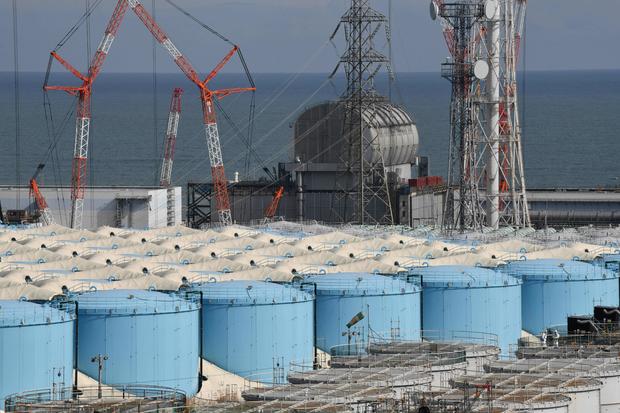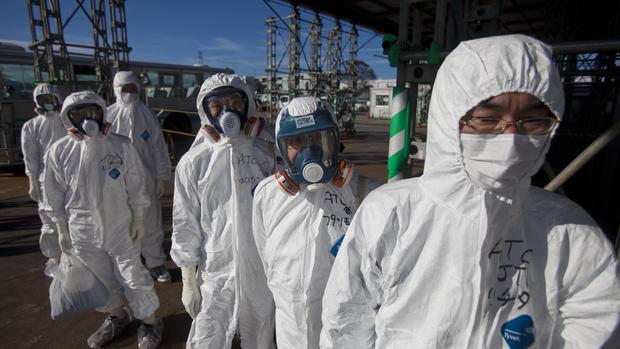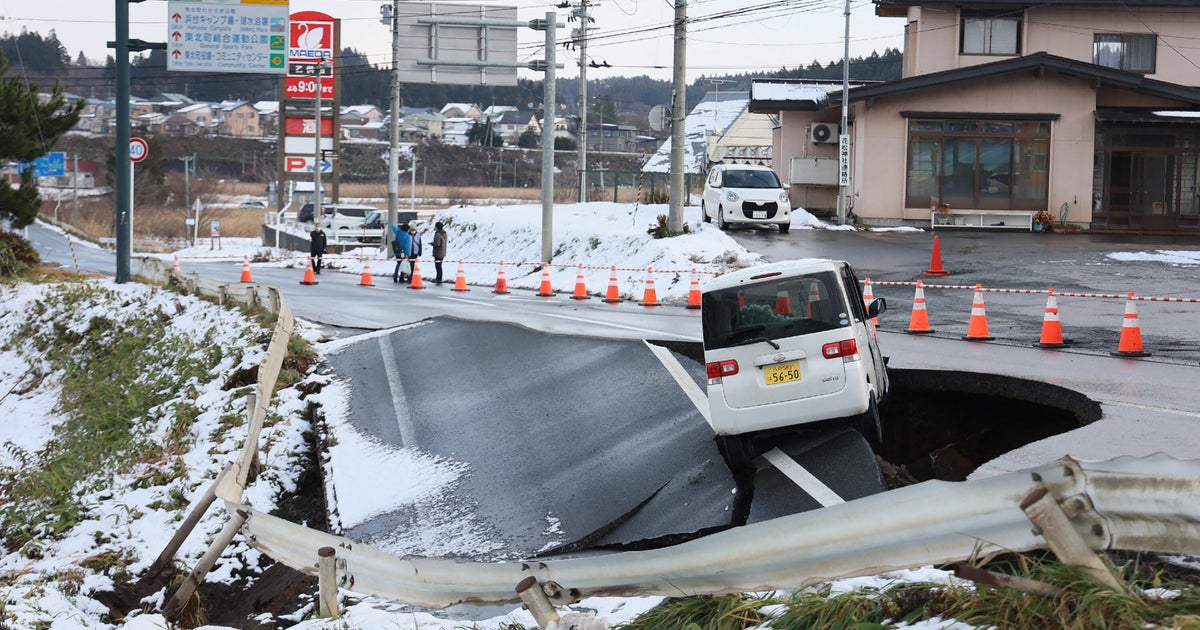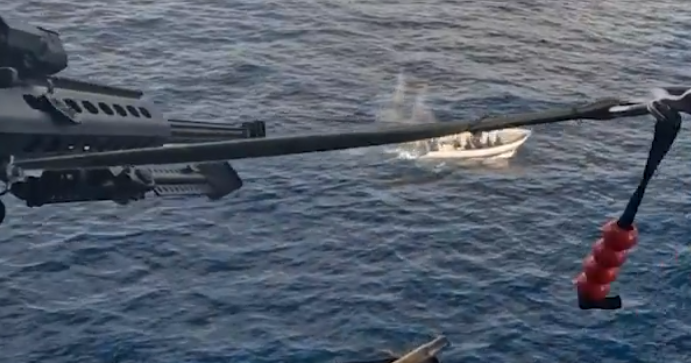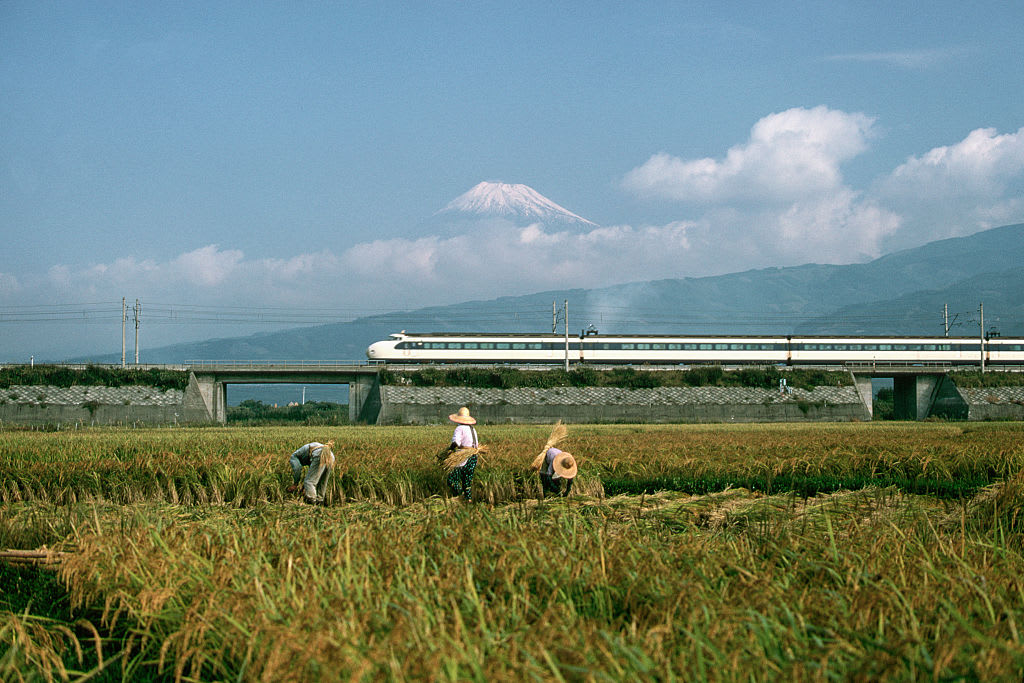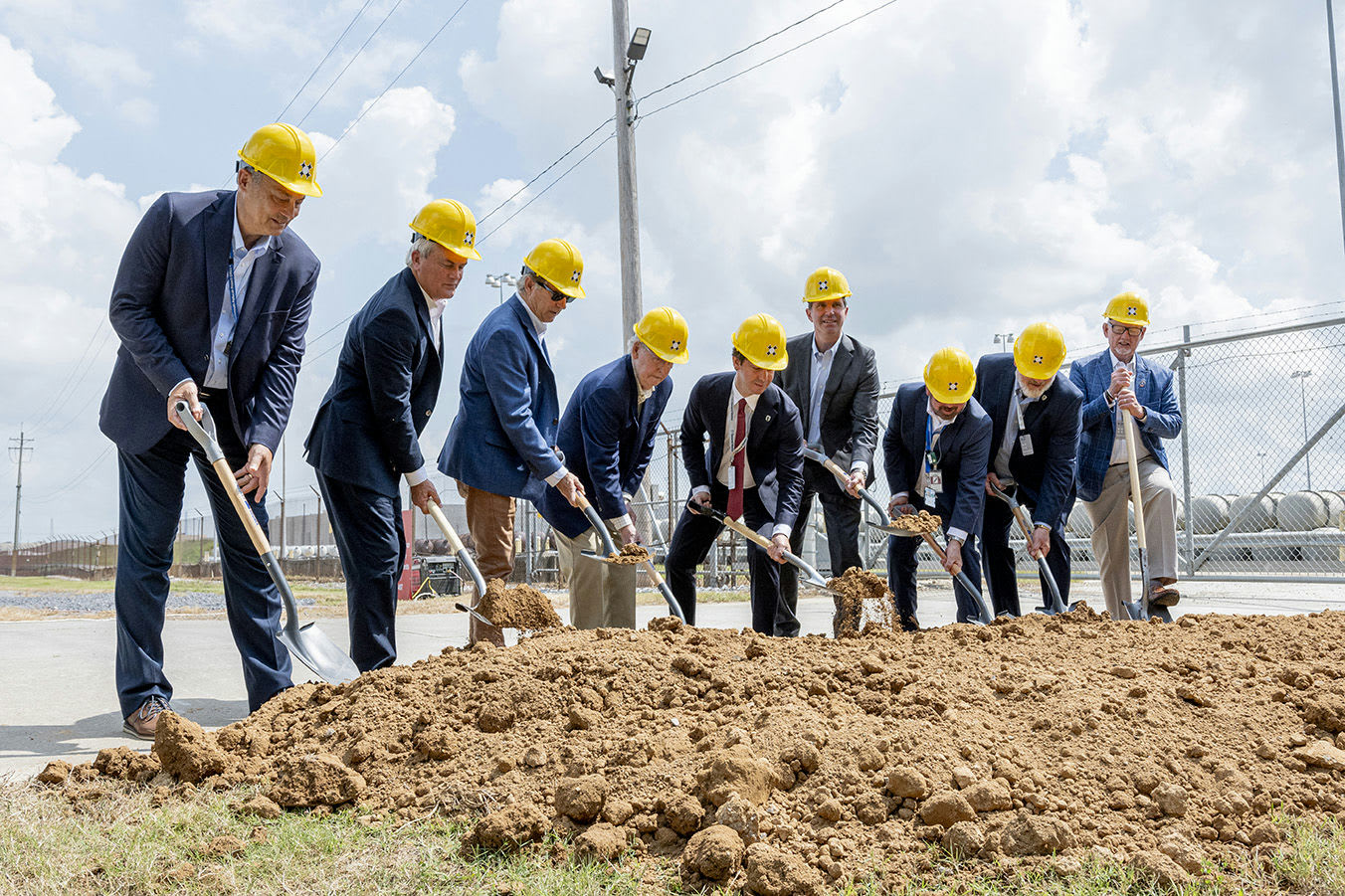High anxiety as Japan takes another step toward releasing wastewater from crippled Fukushima nuclear plant into sea
Tokyo — The fishing industry around Japan's Fukushima coast expressed disappointment and resignation over the weekend as long-expected plans to start releasing treated wastewater into the ocean from the crippled Fukushima Daiichi nuclear power plant moved one step closer to reality. The drastic measure has been adopted as the only practical way out of a dilemma that's plagued the damaged plant for more than a decade.
Late last week, Japan's national nuclear regulator formally endorsed the plan to discharge more than 1 million tons of wastewater from the plant into the sea off Japan's Pacific coast. The water will be filtered first to remove about 60 radioactive isotopes, with the exception of tritium, which can't be extracted using existing technology.
After inspection and dilution with seawater, the water will be pumped out beyond Japan's fishing zones through a 0.6-mile-long undersea tunnel, which will be carved through ocean bedrock starting near the Fukushima Daiichi plant's reactor number 5.
The unprecedented, controversial disposal operation is likely to take decades.
Since the massive 2011 earthquake and tsunami triggered meltdowns in three of the plant's reactors, operator Tepco has struggled to manage the vast amount of contaminated water — a combination of reactor cooling water, rainwater and groundwater, all irradiated as it flows through the highly-radioactive melted reactor cores – accumulating at the facility.
As a stopgap, the grounds surrounding the damaged reactors have been converted into a giant tank farm, with more than 1,000 storage vessels holding 1,310,000 tons of wastewater.
Tepco has long warned that it will run out of storage space as soon as spring 2023, and that the structures are hampering the technologically challenging work of decommissioning the plant. The temporary storage solution is also highly vulnerable to any future natural disasters.
In an effort to assuage concerns from neighboring countries, Japan sought a review by the International Atomic Energy Agency (IAEA). Last spring, IAEA Director General Rafael Mariano Grossi declared ocean disposal "both technically feasible and in line with international practice."
He noted that normally functioning nuclear power plants (including in South Korea and China) regularly discharge wastewater into the sea, but he acknowledged "the large amount of water at the Fukushima plant makes it a unique and complex case."
Before construction of the undersea tunnel can even begin, however, Tepco's proposal must win backing from the regional government in Fukushima Prefecture and the two affected towns of Okuma and Futaba. A Fukushima fish processing company representative told the Asahi newspaper, "to be honest, even if we oppose this, I don't feel like we have any chance of overturning the decision."
After years of painstaking efforts to convince the Japanese public and the rest of the world that their seafood is safe, the local fishing industry fears the ocean release will tarnish their brand anew. Tokyo has promised to buy catches if the industry suffers reputational damage.
Of the 55 countries and regions that imposed restrictions on imported Japanese food after the Fukushima Daiichi catastrophe — including the U.S. — five (China, South Korea, Taiwan, Hong Kong and Macau) still have import bans in place.
Regulators solicited public comment and said they had received more than 1,200 responses, including people voicing concern over whether the undersea tunnel would be earthquake-safe, and what was being done to protect workers.
Tokyo has said levels of tritium — the one isotope that can't be filtered out — will be diluted to below 1/40th of the allowable level for discharge in Japan, and 1/7th the WHO ceiling for drinking water.
Still, some experts have called for greater transparency, fearing unintended consequences of the operation. There is also concern about whether the discharge of enormous amounts of wastewater could set a bad precedent for dealing with future nuclear accidents.
